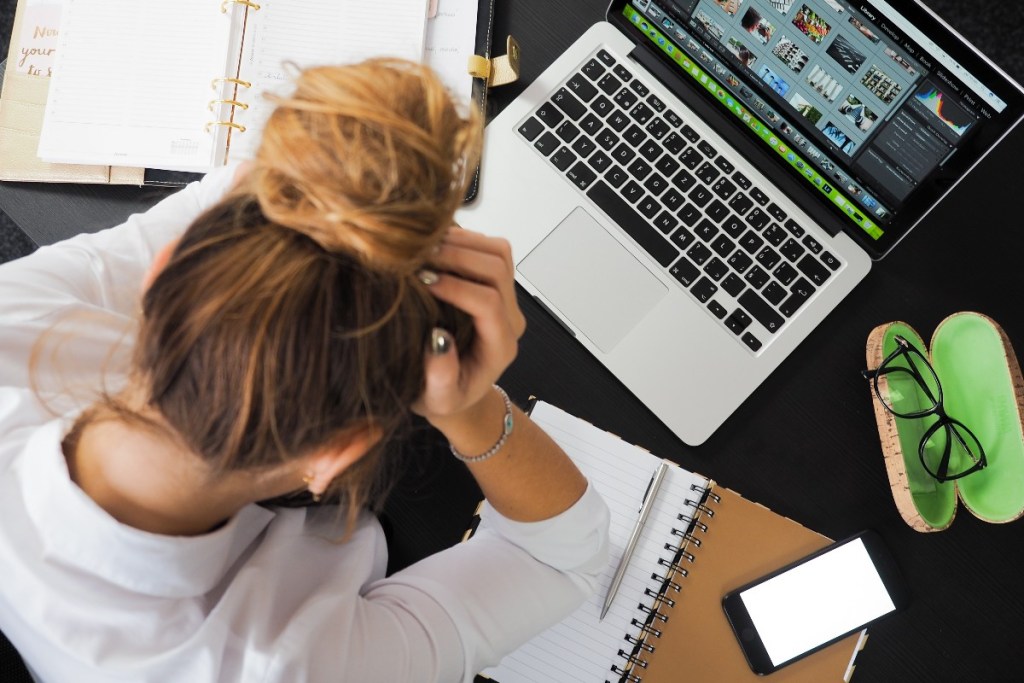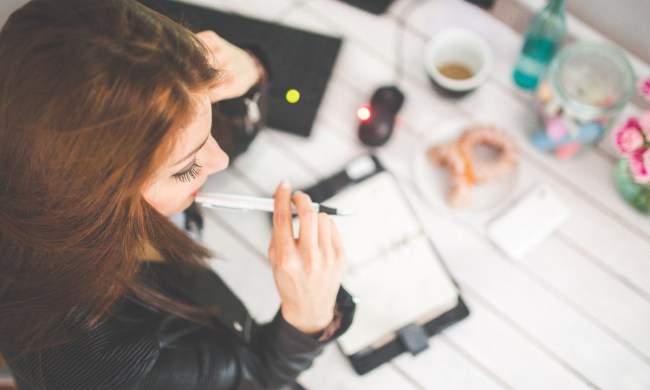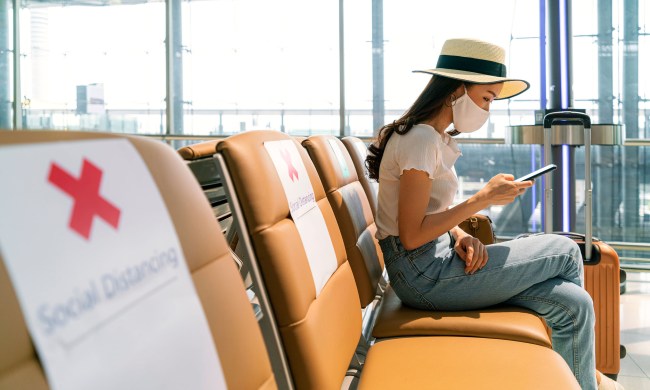The COVID-19 pandemic has generated a larger conversation on workplace stress and balance. People have expressed a need for more boundaries, flexibility, and paid sick and family leave.
However, stress at work remains prevalent. A survey by professional services network KPMG revealed in May that 94 percent of workers are stressed — and that’s when COVID-19 numbers were declining. Pandemic or not, we spend about a third of our lives at work. You likely don’t want to be stressed during 30 percent of your waking hours, let alone for long periods after logging off. It’s essential to unwind. Here’s what you need to know about workplace stress and how to reduce it by not taking it home with you.

Why it’s vital to reduce workplace stress
Stress is harmful to your mental and physical health. The National Institute of Mental Health says long-term stress can increase your risk for anxiety, depression, irritability, and sleep issues. Physically, it can harm the immune and digestive systems and may increase your likelihood of developing heart disease and high blood pressure.
These issues may make you less productive at work — or unable to log on at all. Stress, depression, or anxiety contributed to more than half of the lost working days in 2019-20, according to a Great Britain survey. Taking time to relax after work and putting the day behind you can help minimize call-outs and increase your productivity.
Ways to reduce stress after work
There are various ways to put the day behind you and release stress. Here are a few to try.
Put your phone away
Mobile devices keep us constantly connected. When it comes to working, it can feel like you’re never off since you have the ability to message colleagues and your boss at any time in the palm of your hand. Turning notifications for work-related apps off can reduce this pressure, but the temptation to check may persist.
The problem is not simply working off-hours. Doing so increases your exposure to the blue light your screen emits, which decreases your body’s ability to produce melatonin, impeding sleep. A lack of sleep can only increase stress. Make your after-hours a screen-free time. Read a hard copy of a book, play board games instead of Candy Crush or Angry Birds, and speak face-to-face with family, friends and roommates.
Schedule time for hobbies
Even if you’re passionate about your job, having a life and interests outside of work is healthy. Engaging in leisure activities can boost your physiological and physical well-being, according to one study. Recent research also finds that having personal passions separate from work is beneficial.
Take time to think about your interests and things outside of work that make you happy. Maybe it’s gardening. Try growing an herb garden and tending to it after work. Love golf? Hit up a driving range on your way home to get your mind off of things and boost your physical activity.
Take a long bath
It sounds cliché, but a long, luxurious bubble bath can be a significant stress reliever after a long day at work. Warm water can help relax your muscles, and engaging in deep breathing during your bath can put you in the present moment and a calmer state of mind. Bonus: You may even sleep better. A study showed that taking a warm bath 90 minutes before bedtime helped people fall asleep faster. To add a little extra TLC to your bath, light some candles or put salts into the tub.
Get out into nature
Mother Nature boasts soothing benefits. Studies suggest exploring green spaces can boost your mental health. Find a local nature trail, park, or garden, and head for a leisurely walk. The walk can serve as your “commute” and signal that the workday has ended if you’re working from home. Working in-person? Let the walk be your time to breathe after dealing with traffic or a train delay.
You work hard. Your mind shouldn’t have to work overtime, ruminating about everything that happened and everything you have to do the next day after you leave. However, taking your job home is a common problem. Working on this issue can increase your physical and mental health, and many of the solutions are simple and fun. Put your phone somewhere you can’t see it to reduce the temptation to check work emails and messages. Pursuing completely separate passions from your day job can also help you de-stress. Long baths and nature walks are also relaxing. Remember: Making time for yourself is healthy. By giving yourself time to recover, you’re increasing the likelihood that you’ll be happy, healthy, and focused during your next shift.
BlissMark provides information regarding health, wellness, and beauty. The information within this article is not intended to be medical advice. Before starting any diet or exercise routine, consult your physician. If you don’t have a primary care physician, the United States Health & Human Services department has a free online tool that can help you locate a clinic in your area. We are not medical professionals, have not verified or vetted any programs, and in no way intend our content to be anything more than informative and inspiring.




